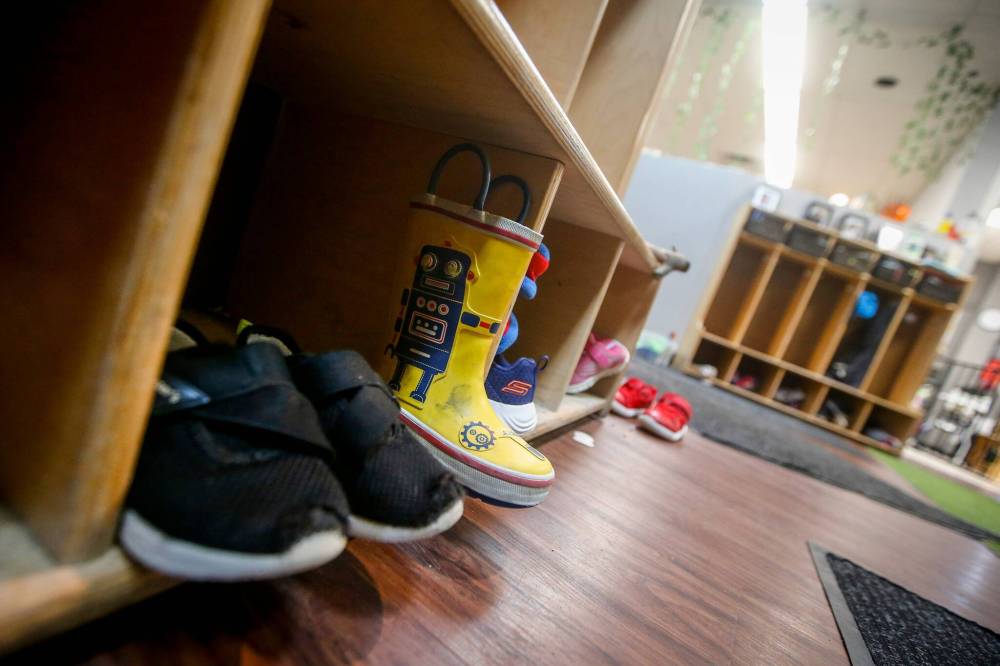Supporting our most vulnerable
Advertisement
Read this article for free:
or
Already have an account? Log in here »
To continue reading, please subscribe:
Monthly Digital Subscription
$1 per week for 24 weeks*
- Enjoy unlimited reading on winnipegfreepress.com
- Read the E-Edition, our digital replica newspaper
- Access News Break, our award-winning app
- Play interactive puzzles
*Billed as $4.00 plus GST every four weeks. After 24 weeks, price increases to the regular rate of $19.95 plus GST every four weeks. Offer available to new and qualified returning subscribers only. Cancel any time.
Monthly Digital Subscription
$4.99/week*
- Enjoy unlimited reading on winnipegfreepress.com
- Read the E-Edition, our digital replica newspaper
- Access News Break, our award-winning app
- Play interactive puzzles
*Billed as $19.95 plus GST every four weeks. Cancel any time.
To continue reading, please subscribe:
Add Free Press access to your Brandon Sun subscription for only an additional
$1 for the first 4 weeks*
*Your next subscription payment will increase by $1.00 and you will be charged $16.99 plus GST for four weeks. After four weeks, your payment will increase to $23.99 plus GST every four weeks.
Read unlimited articles for free today:
or
Already have an account? Log in here »
Hey there, time traveller!
This article was published 22/06/2024 (581 days ago), so information in it may no longer be current.
It is said that you can tell a society’s values by how it treats its most vulnerable citizens.
Generally, we invoke this sentiment to talk about the citizens among us facing socio-economic suffering; the unhoused, the poor, or the addicted. People on the fringes. And as well, senior citizens. But there is another group, more vulnerable than any, whom we are constantly letting down: our children. They’re the only group writ large with neither the physical, financial or political means to advocate for or defend themselves.
Over the past week, the Free Press has published a six-part series shining a light on the many problems plaguing child care in Manitoba. Child care is a crucial public service with many facets, but no matter what angle you look at it from, things are not going well.

JOHN WOODS / FREE PRESS
Child care woes are wide-ranging throughout Manitoba.
Even after government proudly announced $10-per-day daycare, families struggle to find skilled, affordable care. Parents with special-needs children face a never-ending, uphill battle to both obtain and retain funding so that their children can get what they need. In one harrowing example, in our first instalment of the series, two parents shared their ordeal in getting answers and accountability after their child reported being abused in a bathroom by other children.
In the province’s North, all of these problems are amplified.
Frankly, it’s shameful.
Child-care is far from a temporary concern for parents. In a world where most parents must work, away from the home, in order to financially provide for their families, it is a necessity for many until their children are legally allowed to stay home alone. That means that for about 12 years, most parents in Manitoba must be able to arrange for child care.
And those first 12 years are important. They take the child from toilet training to the edge of adolescence. They are crucial, formative years, and the experiences those children have will set their future course in serious ways. It is imperative, then, that child care be both easily obtainable, and the workers providing the care be properly trained.
Child care should not be an extra source of stress for parents. The concept of it is already stressful at a basic level — how many parents feel a pang of anxiety the first time they drop off their child with a person who, however certified and qualified, is essentially a stranger? And yet the situation is made worse by the service being difficult to obtain in the first place; by the punishing cost, even for relatively well-off families. Then there are the occasional, nagging indications that all may not be well at the facility in question.
A word of appreciation here for child-care workers themselves — none of this is to throw them under the bus. Early childhood educators are by and large crucial to our children’s development. They have a tough job, between working with children at various stages of development and easing parental anxieties, and they get compensated little to do it.
We need more of them and we need to do better by them. But, so it goes for much in Manitoba in 2024.
And that’s really the issue, isn’t it? The institutional failures of child care in Manitoba are the same as the ones we face on the housing, poverty, addiction and public infrastructure fronts: a sprawling web of problems that require major investment, time and vision to properly deal with. Where to begin?
Perhaps we should begin with the ones who need it most.











